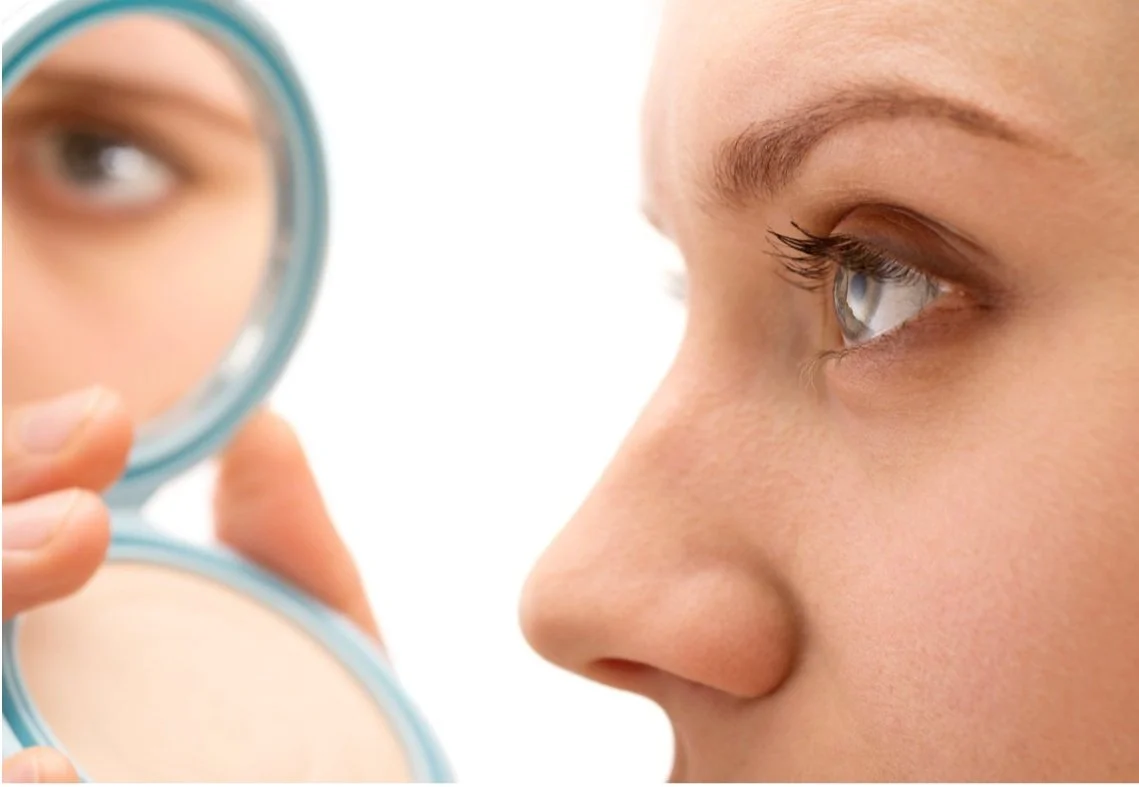If your itchy acne is causing you significant discomfort or at-home topicals don't do the trick, Dr. Turner recommends consulting a board-certified dermatologist to come up with a plan that addresses your specific situation.
Well + Good: Your Body Produces Less Hyaluronic Acid As You Age—This Serum Helps You Make More
This molecule—which is sometimes referred to as “HA”—is beneficial to the complexion because it “attracts and binds water molecules and increases the water content of the skin to support hydration,” says Dr. Ryan Turner, a board-certified dermatologist. “When used correctly, it supports your skin’s barrier and is helpful in warding off dry winter skin,” he adds.
Bustle: What To Know About The "Dry Cleansing" Skin Care Hack
Before you fully adopt a new cleansing habit, keep in mind that dry washing is not foolproof. “Dry cleansing with certain products can be irritating to sensitive skin or those with inflammatory skin conditions,” says Dr. Ryan Turner, M.D., a New York City-based dermatologist.
Bustle: Can You Really Use Ice To Treat Acne?
Bustle: Peel-Off Face Masks Are The Most Satisfying Way To Exfoliate
These products work by lifting dead skin cells and debris from the outermost layer of your skin through the act of peeling the dried mask off. Compare that to chemical exfoliants, which use alpha- or beta-hydroxy acids to loosen the bonds between skin cells (Though it’s worth noting that many peel-off face masks also contain supporting exfoliating acids.) Traditional physical exfoliants like scrubs, on the other hand, use small, textured particles to remove dead skin cells and debris, board-certified dermatologist Dr. Ryan Turner, M.D. explain
Parade: Here's What Sebaceous Filaments Are—and How To Make Them Less Visible
In terms of what causes sebaceous filaments, Dr. Turner says that they are made from oil production and dead skin cells. Again, he emphasizes that this is totally normal. “Sebaceous filaments can be a natural process in the skin to move sebum to the surface of the skin for moisturization,” he says. Dr. Turner says that blackheads, on the other hand, pop up when there is excess oil, which clogs pores.
Bustle: 7 Derm-Approved Tricks That'll Help Ease Sunburn Pain
Board-certified dermatologist Dr. Ryan Turner, M.D. says melanated skin can get sunburned and experience the negative effects associated with prolonged UVB exposure, like skin cancer. “While melanated skin offers some natural protection, sun protection is advised for skin of all colors,” Turner says.
Parade: What Are Sunburn Blisters and What’s the Best Way To Treat Them?
Harvard-trained dermatologist Dr. Ryan Turner, MD, adds that the fluid in the blisters may be white or clear and the adjacent skin may be red, swollen, and painful to the touch.
Bustle: How To Get Rid Of Dark Knees, According To Dermatologists
Dark knees can show up on anyone, but they’re most common in people with darker skin, explains board-certified dermatologist Dr. Ryan Turner, M.D. The New York City-based doctor says, “When a person’s natural skin pigment is darker, the chances of having dark knees increases, but darker knees may appear in people of all skin tones and types.”














